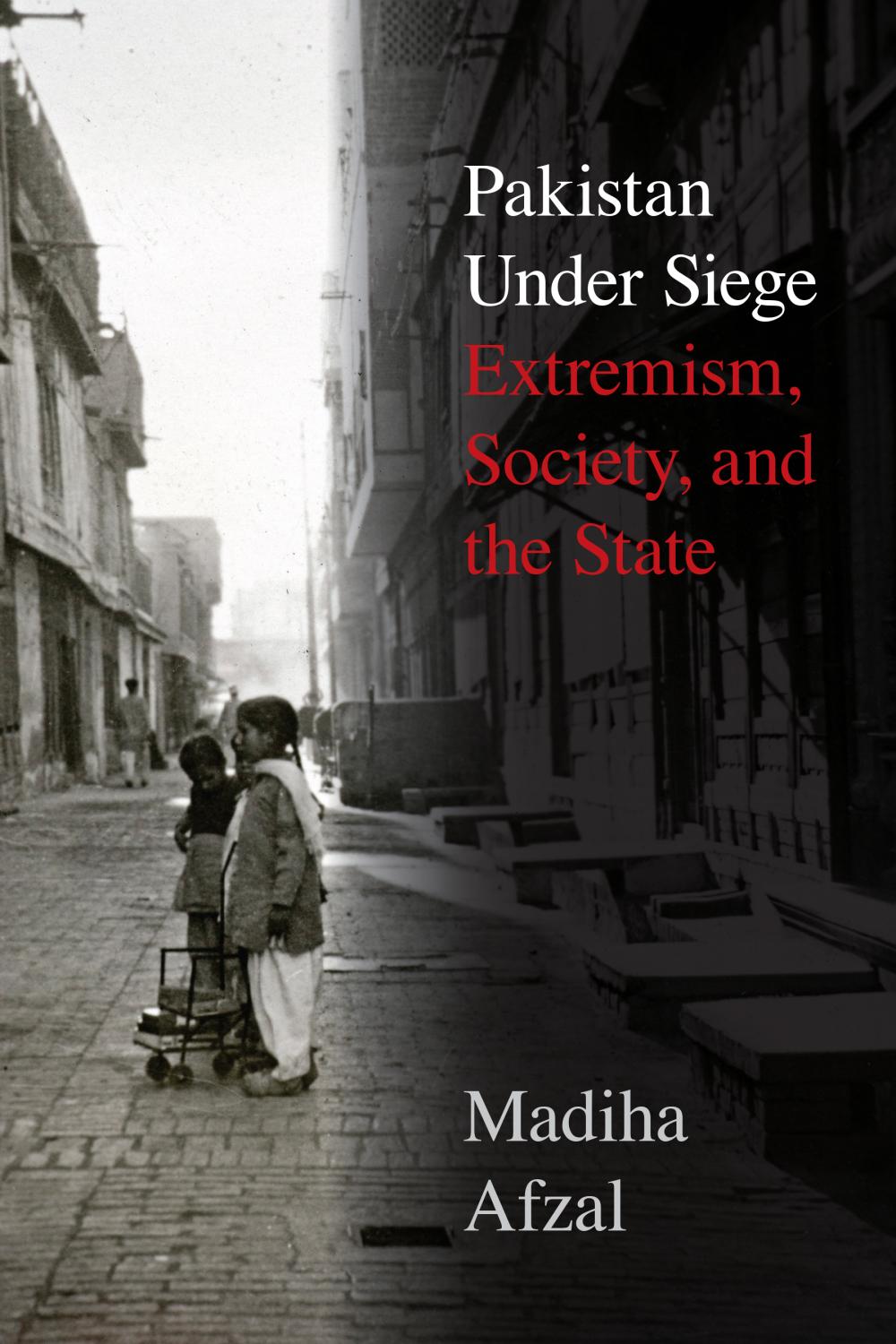Praying for Pakistan Extremism and Corruption in a Troubled State
Over the last fifteen years, Pakistan has come to be defined exclusively in terms of its struggle with terror. But are ordinary Pakistanis extremists? And what explains how Pakistanis think?
Much of the current work on extremism in Pakistan tends to study extremist trends in the country from a detached position―a top-down security perspective, that renders a one-dimensional picture of what is at its heart a complex, richly textured country of 200 million people. In this book, using rigorous analysis of survey data, in-depth interviews in schools and universities in Pakistan, historical narrative reporting, and her own intuitive understanding of the country, Madiha Afzal gives the full picture of Pakistan’s relationship with extremism.
The author lays out Pakistanis’ own views on terrorist groups, on jihad, on religious minorities and non-Muslims, on America, and on their place in the world. The views are not radical at first glance, but are riddled with conspiracy theories. Afzal explains how the two pillars that define the Pakistani state―Islam and a paranoia about India―have led to a regressive form of Islamization in Pakistan’s narratives, laws, and curricula. These, in turn, have shaped its citizens’ attitudes.
Afzal traces this outlook to Pakistan’s unique and tortured birth. She examines the rhetoric and the strategic actions of three actors in Pakistani politics―the military, the civilian governments, and the Islamist parties―and their relationships with militant groups. She shows how regressive Pakistani laws instituted in the 1980s worsened citizen attitudes and led to vigilante and mob violence. The author also explains that the educational regime has become a vital element in shaping citizens’ thinking. How many years one attends school, whether the school is public, private, or a madrassa, and what curricula is followed all affect Pakistanis’ attitudes about terrorism and the rest of the world.
In the end, Afzal suggests how this beleaguered nation―one with seemingly insurmountable problems in governance and education―can change course.
Praise for Pakistan Under Siege
“Pakistan Under Siege is fascinating, and a tremendously valuable contribution to the literature.”
—Teresita C. Schaffer, Survival
“Afzal’s multi-layered approach to explaining Pakistan makes it sound like a normal country—almost. The book details the rise of religious extremism and explains how the state has been both complicit in extremist violence and victimized by it. . . . Afzal’s book offers a useful survey of the many pressures—cultural, religious, economic—that add to social and political instability in Pakistan.”
—Mohammed Hanif, Foreign Affairs
“Pakistan Under Siege: Extremism, Society, and the State, by the young academic Madiha Afzal, is a remarkably clear, concise, and accessible attempt to dismantle assumptions common among Westerners about public opinion in Pakistan. . . Afzal not only gives the lie to Western stereotypes about the prevalence of extremist beliefs in Muslim countries; she also looks closely and critically at the ways in which the Pakistani government has encouraged the country’s militarization and what she refers to as its “Islamization.””
—Ahmed Rashid, The New York Review of Books
“A valuable guide to understanding some of the major problems and challenges facing Pakistani society and the measures required to resolve them.”
—Joshua Sinai, Perspectives on Terrorism
“Afzal explores the ways in which Pakistan’s deep connections to the Islamic faith and its obsession with India shape the views and opinions of its citizens. Unlike books on similar topics, Afzal’s coverage of the military, political parties (typically Islamist in nature), and civilian government introduces readers to an important side of Pakistan. Recommended.”
—CHOICE
“This is an important book, bringing to a foreign audience a nuanced understanding of Pakistan’s challenges: how Islamization has affected society in recent decades and how institutions have responded. It’s a tough and often disheartening story. Yet with diligent research and an open mind, Madiha Afzal leads us past stereotypes of violent extremists and cynical elites. She demonstrates that there is indeed a vital center in Pakistani society—and that this center can be the basis for the stability and prosperity that Pakistan could enjoy.”
—Cameron Munter, President, East-West Institute, and former U.S. Ambassador to Pakistan (2010–12)
“Madiha Afzal has pulled off the rare feat of writing a well-balanced and thoughtful account of extremism in Pakistan, describing its roots and also the extent of its influence, and offering some ideas about how Pakistan can move forward to a more tolerant future.”
—Peter Bergen, author of United States of Jihad: Investigating America’s Homegrown Terrorists
Author
Madiha Afzal is a nonresident fellow at the Brookings Institution. She is also an adjunct assistant professor of global policy at Johns Hopkins SAIS and was previously an assistant professor of public policy at the University of Maryland. She writes regularly for Pakistani and international publications and has been a consultant for the World Bank and DFID. For her writing on education in Pakistan, she was named to Lo Spazio della Politica’s list of Top 100 Global Thinkers of 2013.
Media Coverage
The Aasia Bibi Case: Significance and Implications
Non-Fiction: Shades of Gray
Pakistan’s Jihadi Proxies
Madiha Afzal on “Pakistan Under Siege: Extremism, Society, and the State”
Pakistan Under Siege


